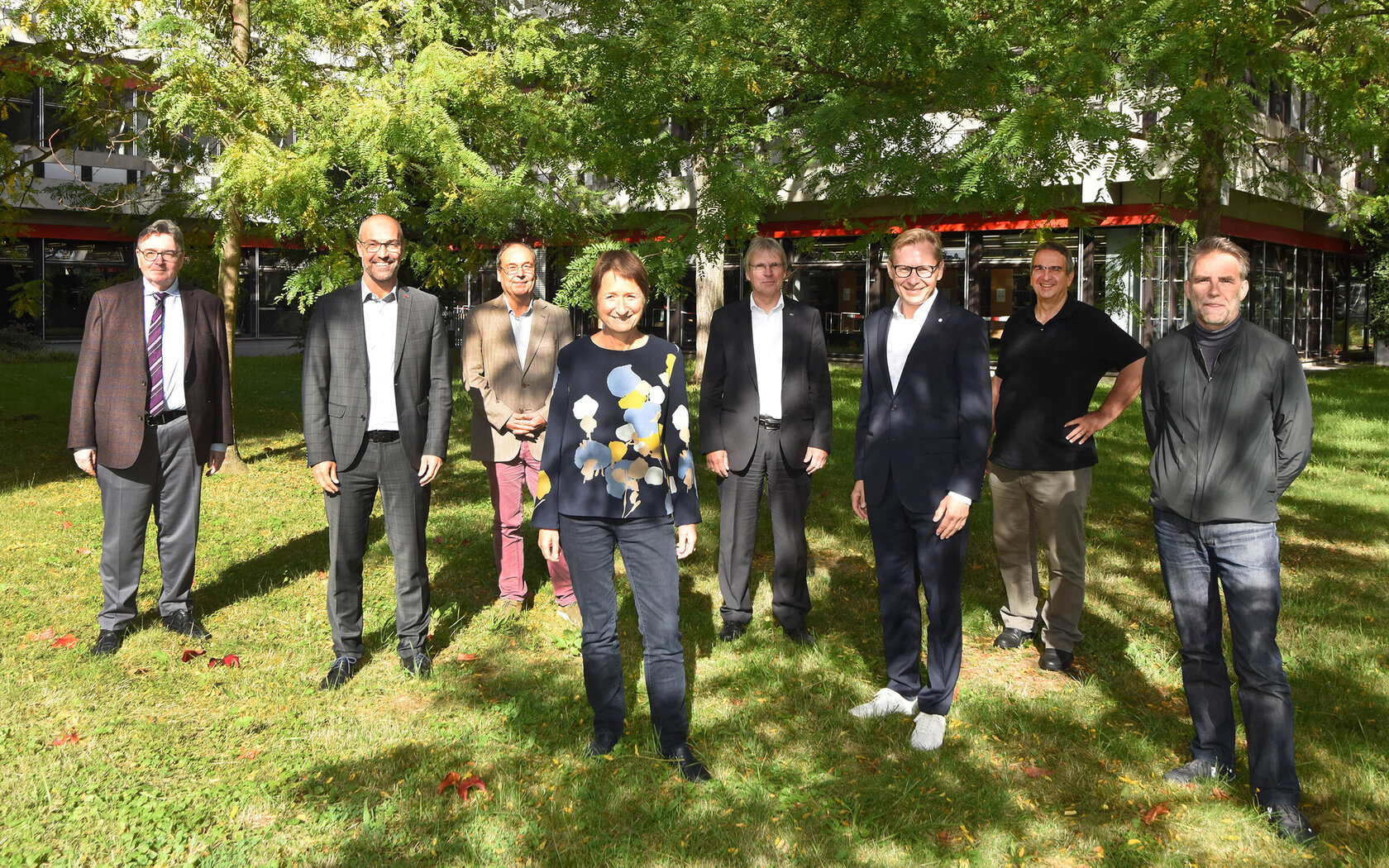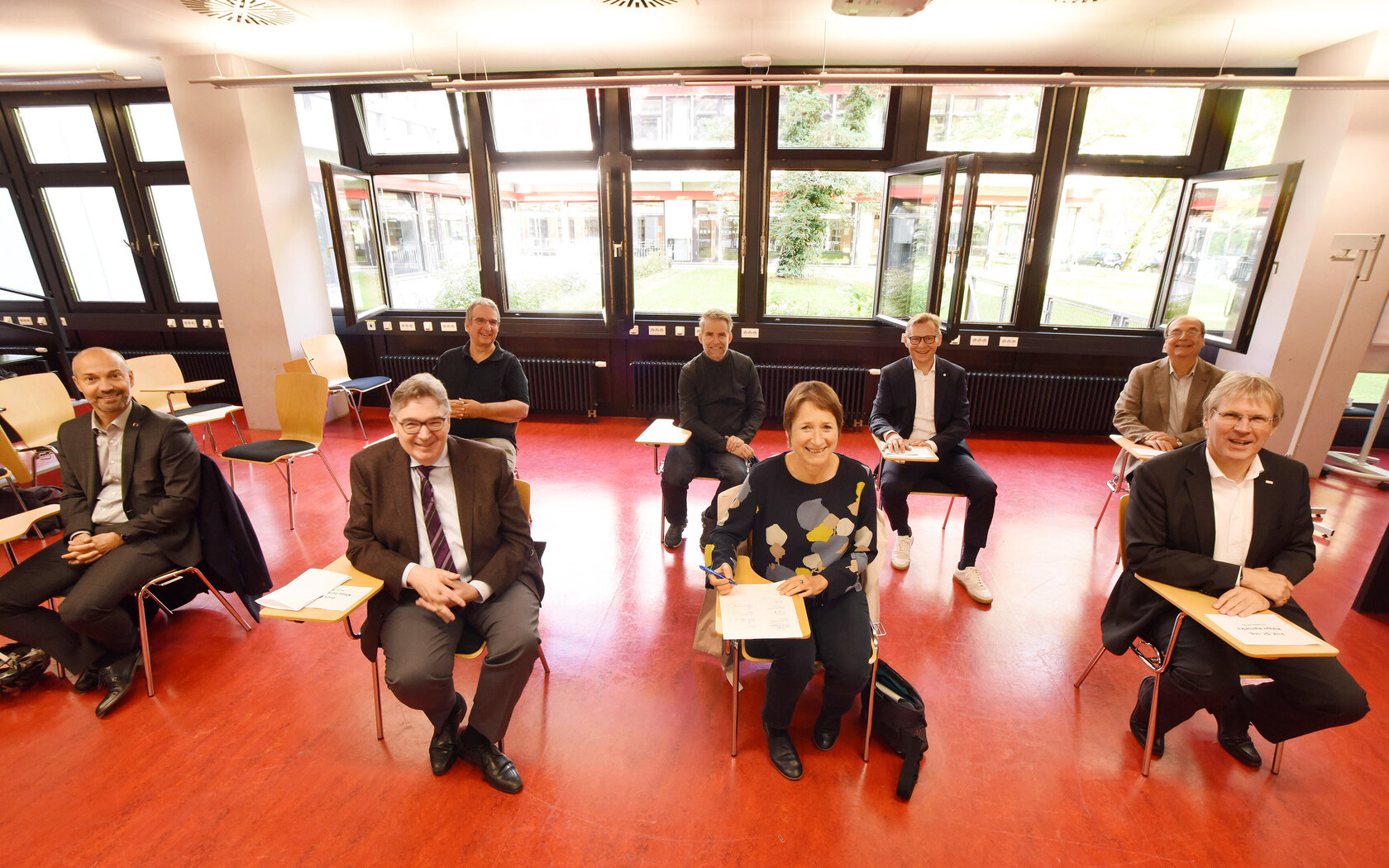Climate pact with the city of Karlsruhe
The eight universities in Karlsruhe agree on a climate pact with the city in order to jointly make concrete and sustainable contributions to the implementation of the Paris climate agreement

September 30, 2021
Today, Thursday, September 30, 2021, the eight institutions of higher education in Karlsruhe - the Karlsruhe Institute of Technology (KIT), the Karlsruhe University of Applied Sciences (HKA), the Karlsruhe University of Education, the Karlsruhe University of Music, the Karlsruhe University of Arts and Design, the State Academy of Fine Arts Karlsruhe, the Baden-Württemberg Cooperative State University Karlsruhe, and the Karlshochschule - agreed on a climate pact with the city of Karlsruhe. The institutions see climate change as one of the greatest and most pressing challenges of our time and, together with the city of Karlsruhe, want to make concrete and sustainable contributions to the implementation of the Paris climate protection goals. The climate pact is a first-of-its-kind initiative by German universities. In addition to making their own contributions to climate protection, the aim is also to support the municipal goals with combined forces and university-specific expertise, as well as to actively contribute to the development of new projects.
At the signing ceremony, Prof. Dr. Robert Pawlowski, Vice-President for Development, Construction and Infrastructure at HKA, emphasized that sustainable climate protection can only be achieved together with the broadest possible impact. "To achieve this, we need the creativity and expertise from academia, but also the will to change and well-functioning networks - we are therefore pleased about the joint climate pact between the city and the universities. We already initiated the process towards a climate-neutral campus at HKA a good two years ago with the initiative 'Our Campus 2030+'. Since then, we have been developing measures and projects to reduce CO2 emissions with the participation of employees and students in teaching, research and operations. The focus is on the building stock on campus, the mobility of HKA employees and social interaction. With our participation in the Climate Pact, we want to do even more justice to our responsibility to society and the environment. As one of the largest universities of applied sciences, we are in the fortunate position of having all the expertise needed for such a project, which we are happy to contribute to the pact: from transportation experts and computer scientists to civil engineers and architects to mechanical and electrical engineers."
Universities in their capacity as businesses and employers
As public institutions, the eight institutions have particularly high visibility and effectiveness. Thus, in their function as businesses and employers, the universities are aware of the importance of their actions for climate protection. The goal of climate neutrality by 2040 at the latest, as contained in the climate protection concept of the city of Karlsruhe, is also being pursued by the Karlsruhe universities, each setting internal reduction targets and supporting each other in achieving the goals. As with the city administration, the path to climate neutrality by 2040 is a complex and costly undertaking. The experience of the city administration will therefore be incorporated into the process at the universities. The use as well as the construction and maintenance of buildings, the procurement of goods and the mobility of employees and students are the most important approaches for measures to reduce CO2.
Climate protection in research and teaching
Climate protection is to be given an important place in research. The universities want to develop joint projects and intensify academic exchange. Cooperation with students will make it possible to increasingly address climate protection in teaching and thus also involve future generations. Content and didactic formats on sustainable topics should be combined across universities. All universities have strong networks and can thus act as multipliers and develop new networks on climate protection topics. The aforementioned activities, in particular the management of internal climate targets in operations, require additional expenditure. The partners in the climate protection pact will review which sub-goals can be met with existing resources and where new capacities need to be built and funding is required. With a view to the sustainability and energy efficiency of buildings, the initiative will liaise with the state of Baden-Württemberg.
Communication and visibility
With the climate pact, joint activities are to be developed and communicated centrally to the outside world. Furthermore, institutions and associations at state and federal level are to be jointly addressed. From the perspective of the city of Karlsruhe, this agreement is an important building block of the Karlsruhe climate protection concept. Therefore, the city is very pleased about this development and will accompany the universities on this ambitious path and support them as far as possible.
Karlsruhe Mayor Bettina Lisbach: "We see the involvement of universities in climate protection as a valuable contribution to the implementation of the Karlsruhe climate protection concept. We need all social forces for consistent climate protection. Our universities have significant potential in teaching and research, in their networks, and not least as businesses and employers to make great strides here."
